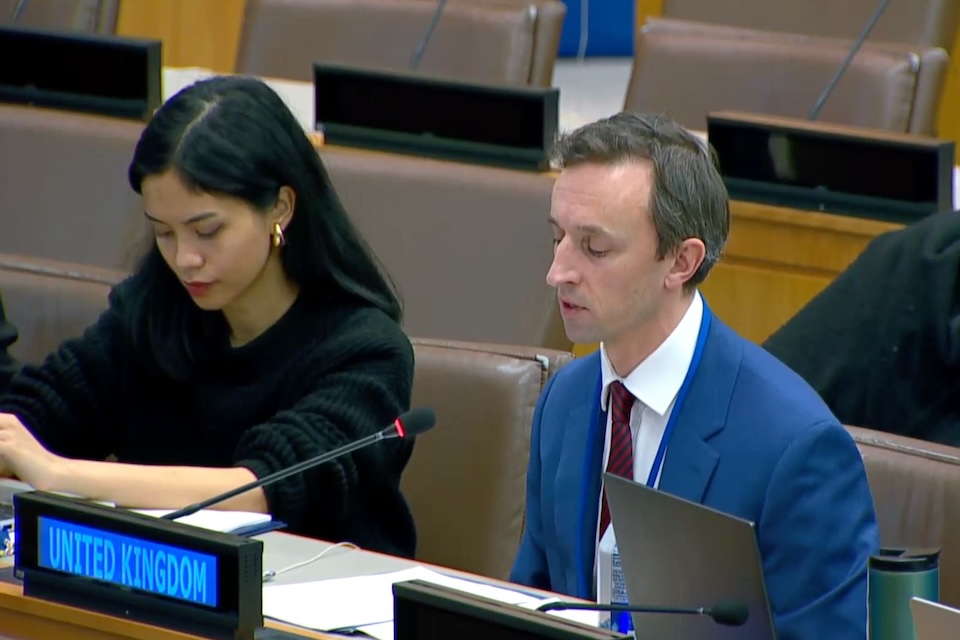The UK is leading on reforms to the UN’s NGO Committee: UK statement at the UN
Statement by Ambassador Archie Young at the opening session of the UN Committee on Non-Governmental Organisations (NGOs).

Thank you Madam Chair, I echo the congratulations expressed by distinguished colleagues.
As we begin our work this year, we recognise the pivotal role of civil society in debate, understanding and decision making. In a world marked by escalating challenges, civil society organisations are a key pillar of open societies and often emerge as the frontline defenders. They play a critical role in protecting and promoting human rights, tackling global issues from climate change to conflict, and holding those in power to account. Inclusive multilateralism lies at the heart of our work and civil society inclusion at the UN remains vital.
This Committee exists because we, as Member States, recognise that collaboration with civil society is essential to the UN’s functioning. They bring valuable perspectives, amplifying the voices of those directly affected. Their efforts enrich the evidence base at our disposal, making our meetings more effective and substantial. Civil Society contributions ensure we make informed decisions, paving the way for us to advance the Sustainable Development Goals and achieve a more equitable and just future.
It is for these reasons that the UK remains committed to championing civil society participation, and ensuring that all channels for civil society to engage with governments and those in power remain open.
However, we do so in the face of opposition, within a mechanism that is in urgent need of reform. Politicised deferrals and repeated questions from a small group of Member States obstruct civil society access to the UN platform. This Committee’s role is to facilitate NGO access, not impede it through bureaucracy. This session, the Committee will review 214 new applications, alongside a backlog of 294 deferred applications. Deferred applications are often held back for years, despite detailed responses to questions. This practice of arbitrary blocking over a sustained period stands in contradiction to the spirit of Resolution 1996/31, which aims to foster meaningful collaboration between NGOs and the UN Member States.
We intend to seek approval of all applications from all legitimate NGOs. Therefore our scrutiny of NGOs will be only on the following categories in line with 1996/31.
The NGO must exist and be currently active. The NGO is independent of government, with a majority of positions filled by individuals without government connection. The NGO does not cause harm to people, property, or the environment.
The NGO and its staff are in adherence to the UN Charter, in that it does not engage in politically motivated attacks against Member States, nor verifiably benefit from proceeds of criminal activity.
In joining the Committee in 2023, the United Kingdom made clear our desire to improve working methods, to allow for a transparent, effective and fair system. This year, alongside Costa Rica, we will table a decision in ECOSOC with the intention to improve some of the Committee’s working methods. The current working methods have hindered the Committee’s transparency, efficiency, and ability to fulfil its mandate, as set out in 1996/31. We have debated these reforms within the Committee, some for several years, but we have been unable to make progress. Therefore, it is time to bring the decision to ECOSOC, the parent body for this Committee. We look forward to discussing the proposal with the wider membership.
We urge all Committee Members to promote and facilitate a safe and welcoming space for civil society participation at the UN.
Thank you.